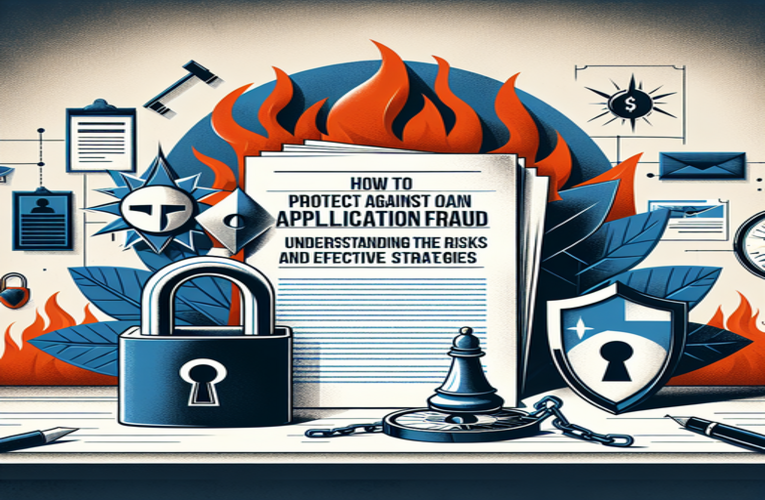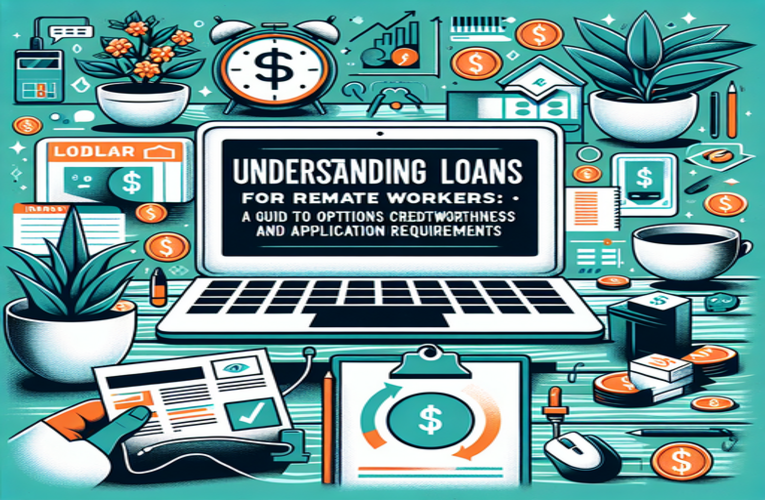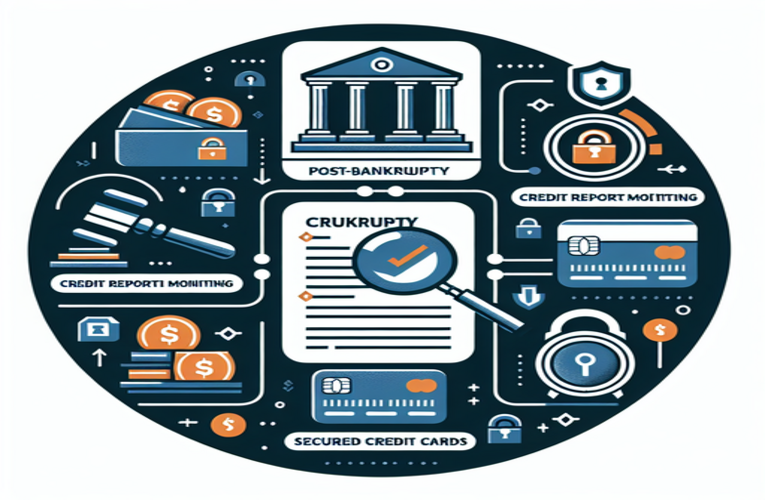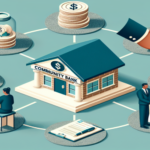Local peer networks for loan advice and sharing tips on improving creditworthiness and avoiding pitfalls
Navigating the complex world of loans and credit can be particularly challenging, especially for those in low-income communities or individuals lacking comprehensive financial education. This article delves into the significance of local peer networks for loan advice and sharing tips, emphasizing how these supportive community groups empower individuals to make informed borrowing decisions. By sharing experiences, accessing valuable resources, and learning from one another, participants can effectively address common borrowing challenges through community-based loan guidance networks.
In this article, we will explore:
- The benefits of local peer networks, such as neighborhood groups for loan advice, in enhancing financial literacy and providing practical strategies for loan management.
- How these community-based networks empower women entrepreneurs by sharing loan tips and helping them overcome funding obstacles.
- Recent trends depicting the growing importance of community-based financial guidance and peer support in financial empowerment.
Ultimately, the insights gained from this discussion will illustrate how local peer networks and community peer support for loan guidance serve as vital resources for individuals aiming to navigate the borrowing landscape effectively, while promoting greater financial independence within their communities.
Table of Contents
Exploring Local Peer Networks for Loan Guidance and Navigating Borrowing Challenges
Navigating the loan landscape can be a daunting task, particularly for individuals in low-income communities or those with limited financial knowledge. Local peer networks, such as community finance groups and neighborhood lending circles, play a critical role in providing assistance and sharing insights about loans. These networks cultivate a supportive community where individuals can exchange experiences, share recommendations, and gain valuable information regarding various lending options. For instance, community-driven microloan programs, like those offered by local credit unions or community development financial institutions (CDFIs), present affordable financing solutions for budding entrepreneurs who might otherwise face exorbitant interest rates or exploitative lending practices from conventional financial institutions. According to a report by the Federal Reserve, approximately 40% of Americans would struggle to cover a $400 emergency expense, highlighting the importance of accessible financial support networks.
Benefits of Local Peer Networks
- Financial Literacy Enhancement: Participation in local peer networks significantly enhances financial literacy through structured workshops, personalized mentorship, and engaging group discussions. Members learn about budgeting, understanding interest rates, and improving credit scores.
- Strategies for Loan Management: Members delve into effective loan management, equipping participants with strategies to sidestep common challenges such as late payments and debt cycles. Sharing practical tips on setting up automatic payments and negotiating repayment terms helps individuals manage debts effectively.
- Social Resilience and Community Support: Open discussions on repayment experiences and credit enhancement techniques help individuals bolster their social resilience. Being part of a supportive community reduces the stigma associated with financial struggles and fosters collective problem-solving.
- Access to Reliable Lending Resources: Members share information about trustworthy local lenders, microfinance institutions, and credit unions, facilitating access to fair loan options. This networking helps individuals avoid predatory lenders and high-interest loans.
- Building Credit History: Through peer-supported borrowing and lending activities, members may build or improve their credit histories, which is crucial for long-term financial stability.
Empowering Women Entrepreneurs
Women entrepreneurs often face distinct obstacles in securing funding and can greatly benefit from mentorship and guidance provided within these peer groups. According to the National Women’s Business Council, female entrepreneurs are 5% less likely to receive business loans than their male counterparts and often receive significantly smaller amounts. Local peer networks offer essential support by providing networking opportunities, mentorship, and resources tailored to their unique challenges. Such support helps in refining credit profiles and plays a fundamental role in fostering a secure financial future for women in business.
Key Components of Effective Networks
- Community Building: By fostering a cohesive environment, local peer networks cultivate strong relationships among members, enabling them to tackle borrowing challenges collectively. Regular meetings and community events strengthen trust and encourage open communication.
- Shared Experiences and Knowledge: Members leverage personal experiences to navigate borrowing complexities, sharing successes and lessons learned. This shared knowledge base helps others avoid common pitfalls and adopt best practices when seeking loans or managing debt.
- Access to Financial Resources: The network offers access to collective wisdom and financial resources, such as recommendations for reputable lenders, guidance on loan applications, and information about local financial assistance programs.
- Educational Opportunities: Effective networks provide educational workshops and seminars on topics like budgeting, credit management, and investment strategies, enhancing overall financial literacy within the community.
- Mentorship and Support: Seasoned members mentor newcomers, offering guidance and support through one-on-one coaching or group sessions. This mentorship is particularly valuable for individuals new to borrowing or those who have faced financial setbacks.
- Advocacy and Empowerment: Networks may advocate for better financial services and policies that benefit the community, empowering members to have a collective voice in shaping financial opportunities locally.
Recent Trends and Impact
In recent years, the trend of forming such networks has gained momentum, highlighting the importance of community in financial empowerment. According to a 2021 report by the Financial Health Network, peer-to-peer financial support groups have grown by 30% in urban areas and 50% in rural areas over the past five years. By harnessing collective wisdom, participants can navigate the borrowing landscape effectively, making informed decisions that benefit themselves and the broader community. These networks not only provide immediate assistance but also contribute to long-term financial resilience by educating members and promoting sustainable financial practices.
Understanding the Role of Local Peer Networks in Enhancing Creditworthiness During Economic Challenges
In the current economic climate, characterized by volatility and uncertainty, local peer networks dedicated to providing guidance on loan options and sharing financial tips have become invaluable resources. For individuals striving to enhance their creditworthiness—especially those with limited access to traditional financial education—these community-based support groups offer a lifeline. These networks provide more than just emotional support; they impart practical knowledge essential for effective financial management. By engaging in community forums, online platforms, and face-to-face discussions, participants can exchange personal experiences related to navigating the complexities of personal finance. This exchange fosters an environment of mutual learning and collaboration, empowering members to take control of their financial futures.
Practical Financial Insights
- Microloans and Community Lending: Members frequently share insights regarding microloans and affordable lending options, particularly during local workshops. Individuals learn about reputable microfinance institutions and CDFIs that offer low-interest loans tailored to their needs.
- Avoiding Predatory Lending Practices: Discussions within the network reveal pathways to accessing necessary funds without succumbing to predatory lending practices. Members share warning signs of unfair loan terms and advise on alternative options.
- Making Informed Financial Decisions: Learning about available resources increases the chances of making sound financial decisions. Members discuss the benefits of debt consolidation, balance transfer cards, and financial counseling services.
- Understanding Credit Reports and Scores: Networks often provide education on how to read credit reports, understand credit scores, and implement strategies to improve them.
Building Community Trust
- Establishing Trust and Transparency: Trust within the network enables safe conversations around sensitive subjects like repayment histories and strategies to avoid default. This openness creates a non-judgmental space for seeking advice.
- Recommendations for Reputable Local Lenders: Participants often recommend reputable local lenders, such as community banks or credit unions, empowering borrowers with confidence and reducing anxiety associated with loan applications.
- Promoting Smart Borrowing Practices: Well-informed individuals make smarter borrowing choices, positively influencing their credit standing. Sharing knowledge about interest rates and repayment strategies helps members select suitable loan products.
- Peer Accountability: The network fosters a sense of accountability among members, motivating adherence to repayment plans and financial discipline.
Flexible Solutions for Financial Strain
- Alternative Lending Options During Tight Credit Markets: When credit restrictions tighten, especially for low-income groups, peer-to-peer lending within the network emerges as a viable alternative. Members may organize lending circles or cooperatives with mutually agreed terms.
- Flexible Repayment Schedules: Community lending arrangements offer flexible repayment schedules aligned with the community’s economic realities, considering factors like seasonal employment or financial hardships.
- Maintaining and Improving Creditworthiness: This adaptability helps members fulfill financial obligations without compromising creditworthiness, enabling them to build a positive credit history.
- Access to Emergency Funds: Networks may establish emergency fund programs to assist members during unexpected financial crises, reducing reliance on high-interest emergency loans.
Enhancing Financial Literacy
- Strengthening Financial Resilience and Community Bonds: Participation in the network bolsters financial resilience and fosters closer community ties, encouraging collective advancement.
- Access to Comprehensive Educational Resources: Members gain access to budgeting seminars, debt management workshops, and investment planning sessions, significantly enhancing financial literacy.
- Promoting Economic Mobility and Opportunity: The education equips members with skills necessary for improved economic mobility, enabling them to manage finances, access credit, and invest wisely.
- Digital Literacy and Access: Networks offer training on digital financial tools like online banking and mobile payment apps, which are increasingly important for effective personal finance management.
Collective Financial Independence
- Transforming Financial Independence into a Collective Endeavor: Engagement within the network turns the pursuit of financial independence into a shared goal. Members support each other’s efforts and work together to overcome obstacles.
- Collaborative Credit Improvement: By collaborating to elevate creditworthiness, members build a financially informed and stable community. Collective initiatives can have a significant impact.
- Fostering a Culture of Support and Continuous Learning: An atmosphere of support positions networks as critical players in financial success. Continuous knowledge exchange ensures all members benefit and grow.
- Economic Empowerment and Advocacy: Through collective action, networks advocate for better financial services and policies that support economic empowerment for members.
Local peer networks for loan advice and sharing tips present a structured approach for individuals looking to enhance their creditworthiness during challenging financial times. By utilizing the collective wisdom and resources available, participants can improve their financial situations and contribute to fostering a culture of informed financial decision-making within their communities. The empowerment gained through these networks can lead to broader economic stability and prosperity for all members involved.
Exploring the Significance of Local Peer Networks in Connecting with Reliable Lenders and Financial Resources
In the contemporary financial landscape, navigating the complexities of loans and credit can feel overwhelming, particularly for individuals seeking reliable lending options amidst a myriad of choices. To enhance access to trustworthy financial resources, one effective method is to engage with local peer networks for loan advice and sharing tips. These community-based lending advice networks foster a supportive atmosphere where individuals can interact with peers who have encountered similar financial situations. This interaction allows them to exchange experiences and recommendations for reputable lenders, share practical tips for loan applications, and advise on avoiding common pitfalls. For instance, in areas where traditional banking services may be scarce, community members have successfully leveraged peer lending arrangements or CDFIs to meet their financial needs.
Key Benefits of Local Peer Networks
- Creating a Supportive Environment: These networks establish an atmosphere of mutual support where individuals feel comfortable sharing their financial experiences without judgment.
- Access to Reputable Lenders and Resources: Members provide recommendations for reputable local lenders, credit unions, and online lending platforms based on personal experiences, helping individuals avoid untrustworthy lenders.
- Enhancing Financial Literacy: Workshops and educational events improve understanding of loans, personal finance management, and financial planning, enabling informed decision-making.
- Building Networking Opportunities: Networks offer opportunities to connect with financial professionals who can provide expert advice and guidance.
- Empowering Financial Decision-Making: Armed with knowledge and support, individuals are better equipped to make financial decisions that align with their goals.
Statistics on Credit Invisibility
According to the Consumer Financial Protection Bureau, approximately 26 million Americans are “credit invisible,” meaning they have no credit history with nationwide credit reporting agencies. Moreover, this issue disproportionately affects individuals in low-income neighborhoods, where around 30% of residents are credit invisible. This lack of credit history poses significant barriers to accessing loans and financial services, underscoring the urgent need for local support networks.
Importance of Microloans
- Microloans as Financial Lifelines: Microloans serve as critical financial lifelines for aspiring entrepreneurs, especially women in underrepresented communities. Programs like the SBA Microloan Program have facilitated over $500 million in microloans to small businesses in recent years.
- Building Trust Within the Community: Peer networks cultivate an environment of trust essential for successful financial endeavors, allowing open discussions and support for entrepreneurial efforts.
- Facilitating Information Exchange: Members share insights into repayment experiences, interest rates, and lender practices, helping each other avoid predatory lending.
- Access to Alternate Financing Options: Networks provide information on alternative financing like crowdfunding, grants, or community investment funds, expanding financial opportunities.
Role of Workshops and Events
Local workshops and community events significantly bolster financial literacy within these peer networks. These gatherings provide interactive learning experiences on essential topics such as managing personal finances, elevating credit scores, and comprehending loan products designed to meet the unique needs of the community. Workshops may feature guest speakers like financial experts or successful entrepreneurs who share their knowledge and experiences.
Overall Impact on Community
Participation in this collaborative environment enhances individual financial resilience and promotes broader economic stability within the community. As more individuals achieve financial stability, the community experiences increased economic activity and improved quality of life. Engagement in local peer networks for loan advice and sharing tips represents a proactive approach towards fostering a more equitable financial framework, benefiting everyone involved. By empowering individuals with knowledge, resources, and support, these networks help bridge financial gaps in underserved communities.
Summary
- Role of Local Peer Networks: These community-based lending advisory groups are essential for individuals in low-income neighborhoods, offering support and guidance on various loan options while enhancing financial literacy through peer-to-peer interactions.
- Benefits of Participation:
- Financial Literacy Enhancement: Participate in educational workshops and interactive discussions to deepen financial understanding and literacy.
- Strategies for Effective Loan Management: Acquire practical techniques for managing loans efficiently to prevent common financial pitfalls.
- Empowerment for Women Entrepreneurs: Provide targeted support and resources to help women overcome barriers to funding and achieve business growth.
- Community Impact: The emergence of these peer-based financial support networks underscores the value of collective wisdom in fostering financial empowerment, promoting a culture of informed and strategic decision-making within the community.
- Practical Insights:
- Microloans and Affordable Lending Options: Members share information on accessible microloan opportunities and collaborate to avoid predatory lending practices.
- Building Community Trust: Establishing trust within the network encourages open and honest conversations about loan repayment and effective financial strategies.
- Flexibility in Lending Solutions: Peer-to-peer lending platforms offer adaptable and personalized borrowing solutions for individuals with limited credit histories, supporting the maintenance and improvement of creditworthiness.
- Collaboration for Financial Independence: Active participation in local peer networks transforms the pursuit of financial independence into a shared objective, collectively enhancing the credit profiles and financial stability of all members involved.
In conclusion, local peer networks serve as invaluable resources for individuals aiming to navigate the borrowing landscape effectively, fostering financial resilience and stability within communities.
Questions and Answers
What are the steps to establish a local peer network focused on loan guidance and financial support?
To establish a local peer network focused on loan guidance, begin by identifying a dedicated group of interested individuals within the community. Define the network’s mission and objectives, such as improving financial literacy and providing loan advice. Schedule regular meetings, whether monthly or bi-weekly, to ensure consistent engagement. Create an online platform, such as a Facebook Group, Meetup, or Nextdoor, to facilitate discussions, resource sharing, and event announcements. Additionally, collaborate with local organizations and financial institutions to enhance attendance and access to resources.
How can community members evaluate the credibility of lenders discussed within peer support networks?
Community members can evaluate lender credibility by conducting thorough research, including reading consumer reviews and testimonials. Verify the legitimacy of lenders through local regulatory bodies and financial authorities. Seek recommendations and firsthand experiences from fellow network members who have previously engaged with the lenders. Additionally, performing due diligence, such as checking for proper licensing and accreditation, can help ensure the reliability of the lenders discussed within the peer support network.
Are there specific online platforms suitable for forming local peer support networks for financial guidance?
Yes, several online platforms are well-suited for forming local peer support networks dedicated to financial guidance. Platforms like Facebook Groups, Meetup, and Nextdoor allow members to easily communicate, schedule events, and share resources. These platforms offer features that facilitate community building, such as discussion forums, event calendars, and private messaging, making them ideal for organizing and managing local peer networks focused on loan guidance and financial support.
How do local peer support networks impact the loan terms offered by financial institutions?
Local peer support networks can significantly impact the loan terms offered by financial institutions by uniting community members to negotiate better rates and favorable terms collectively. By presenting a unified demand for improved loan conditions based on community feedback, these networks can influence lenders to tailor their financial products to better meet the needs of the community. Additionally, providing lenders with insights into the specific financial challenges and requirements of the community encourages the development of more customized and accessible loan solutions.
What role do local businesses play in supporting financial peer support networks?
Local businesses play a crucial role in supporting financial peer support networks by offering sponsorship for events, providing meeting spaces, and contributing resources such as educational materials. They may also host workshops or seminars aimed at enhancing financial literacy within the community. By collaborating with peer support networks, local businesses strengthen their ties with the community, promote financial well-being, and demonstrate their commitment to supporting local economic growth.
Can individuals from outside low-income communities gain benefits from joining financial peer support networks?
Yes, individuals from outside low-income communities can gain significant benefits from joining financial peer support networks. These networks facilitate the exchange of knowledge and experiences across diverse economic backgrounds, fostering a deeper understanding of various financial challenges. Participants can enhance their financial literacy, gain new perspectives on managing finances, and contribute to a collective effort to improve financial well-being for all members. This inclusive approach enriches the network and promotes a more comprehensive financial support system.
What types of financial education workshops are most effective for members of local peer support networks?
Financial education workshops that focus on budgeting, understanding credit scores, debt management, and navigating loan applications are highly effective for members of local peer support networks. Additionally, sessions that address topics such as avoiding predatory lending practices, utilizing microloans effectively, and investing wisely can empower participants with practical skills. Workshops that include interactive elements, such as Q&A sessions and hands-on activities, tend to be particularly beneficial in enhancing the financial competence of network members.
How can peer support networks address cultural differences in financial practices within the community?
Peer support networks can address cultural differences in financial practices by fostering an environment of open dialogue and mutual respect. They can offer workshops and discussions that acknowledge and incorporate diverse cultural perspectives on money management, saving, and investing. Encouraging members to share their unique financial practices and experiences can enrich the collective knowledge of the group. Additionally, providing culturally tailored resources and materials ensures that the financial guidance offered is relevant and accessible to all members, regardless of their cultural background.
What challenges might arise when maintaining a local peer support network for loan guidance, and how can they be overcome?
Maintaining a local peer support network for loan guidance can present several challenges, including fluctuations in member participation, varying levels of financial knowledge, and potential disagreements on loan strategies. To overcome these challenges, it is essential to establish clear ground rules and expectations from the outset. Regular and consistent communication helps keep members engaged and informed. Offering diverse educational resources can cater to different knowledge levels, while fostering a respectful and collaborative atmosphere can mitigate conflicts and encourage constructive discussions.
How can individuals assess the success of their involvement in a local peer support network for financial guidance?
Individuals can assess the success of their involvement in a local peer support network for financial guidance by tracking improvements in their financial literacy and confidence in making financial decisions. Tangible outcomes, such as improved credit scores, successful loan applications, and better debt management, serve as indicators of progress. Additionally, personal feedback and reflections on the knowledge gained and the support received from the network members can provide valuable insights into the effectiveness of their participation. Regularly reviewing these factors helps individuals measure the impact of their engagement with the peer support network.




















